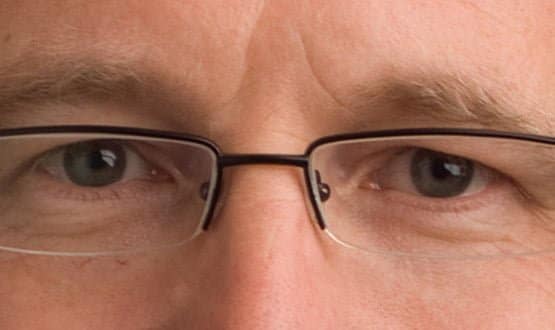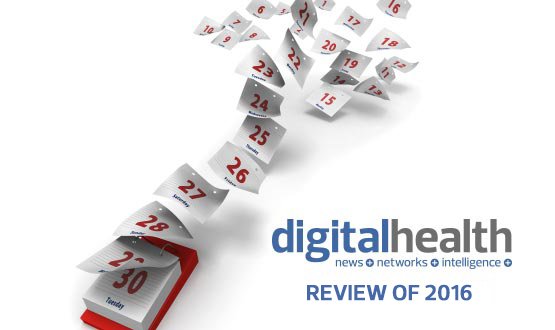EHI Live interview: Dr Mark Davies
- 16 August 2012

The balance of power is shifting, says Dr Mark Davies, the executive medical director of the Health and Social Care Information Centre.
It is shifting away from the primacy of technology as a disruptive force towards the essential role of information. It is shifting away from those who provide services towards those who plan and buy them.
And it is shifting away from “old school” information governance that prevented information sharing at the cost of patient safety, towards sharing as a priority.
“In the past, people talked about disruptive technology bringing about major change in the system and information as a by-product of that,” Dr Davies explains.
“Now people are recognising the primacy of the information flow and that the really disruptive thing is the information; particularly if it is information we can do something with.”
Central to this is the ability to “collect information from any part of the system, assess the data quality of that information against a set of standards, and hold providers accountable for the information they provide.”
Finding out what good looks like
This may seem straightforward, Dr Davies adds, but accountability has been lacking in the past.
In order to be measured, people need to know “what good looks like.” This is where the new role of clinical commissioners is crucial; they need to demand the information they need to make evidence-based decisions.
“Good” information is essentially information that is fit for purpose, Dr Davies explains. Yet, in the past, management information needs often took priority over clinical information needs.
Dr Davies hopes the government’s latest reforms of the NHS, which will put substantial management responsibility – and money – into the hands of clinical commissioners – will change this.
He also thinks that having chief clinical information officers will have a key role to play. EHealth Insider has been campaigning for the creation of chief clinical information officers across the NHS, to lead on IT and information projects.
Dr Davies supports the initiative; because he thinks CCIOs will be able negotiate the trade-off between different priorities.
“The problem we have got is we have one of the most provider dominant systems in the world. Most of the power and influence historically rests with those providing services, as opposed to those buying or planning services.”
He likens the situation to a customer walking into a shop and being offered just one thing to buy and told that it is what they want and need.
Aligning policy and data
So where are the barriers to this vision being realised? Dr Davies does not believe that technology is the bottle-neck and nor is data quality.
“The problem is we have got data that isn’t relevant to the way people do their job and in many ways people become quite divorced from the data that comes from them,” he says.
“The challenge for us is around system alignment; for example linking measurements of quality to the commissioning framework, making sure the incentives are there to be able to drive quality, making sure we have the intelligence that underpins the evidence for restructuring services.”
The Health and Social Care Information Centre will clearly have a key role to play in this. It will become an executive non-departmental body on 1 April next year; by which time it will have expanded enormously.
A document sent to staff last month says that with just a few exceptions, NHS Connecting for Health, strategic health authority delivery and HSCIC staff will be transferred to the new centre, which will become responsible for running and monitoring systems and standards as well as collecting and publishing information.
However, the ‘new’ HSCIC will not be the only player in national IT and information in the future.
The Department of Health will retain responsibility for NHS IT policy, and the NHS Commissioning Board will take up responsibility for commissioning systems and standards.
Many people working in NHS informatics worry that the new set-up will be a mess; and there will be more of a disjunct between policy and the IT and information needed to support it than there was before.
There is also concern that many of the clinicians asked – belatedly – to provide clinical input into the National Programme for IT in the NHS are being ‘let go’ and not taken on by the new organisations.
When asked about the last point, Dr Davies says he cannot comment. However, he reiterates that it is important to have clinical leadership at all levels and that this is being worked on.
“We need to encourage, reward and develop the kind of clinical leaders that we want and need and not leave it to chance,” he argues.
“We need to make it attractive as a career path and make sure the professional rewards are there in terms of status and recognition and that we are supporting people.”
A national data repository
The HSCIC will also become a national data repository. This will involve storing patient identifiable data in a secure place, where it can be linked with other data via the NHS Number to reflect the patient experience of moving through the health system.
The new data service is being launched next month and will see primary and secondary care data linked on an industrial scale for the first time.
Signs are that this information will be in demand and it has already caught the attention of news outlets, keen to mine the data for stories.
Dr Davies recently had his first meeting with staff from a broadsheet newspaper and says Reuters representatives attended a supplier forum.
Promoting data sharing
A common complaint of those who want to move data around and use it in different ways is the role of information governance.
Dr Davies says the NHS is “on the journey” away from the old school idea of IG as a barrier, towards the often quoted goal of IG as an “enabler.”
“I have no doubt that restrictive practices around information sharing have cost lives,” he says.
“It’s down to professional standards for information governance people and a clear articulation around the expectation that people will use information to absolutely maximise quality of care.
“We need to look at those not sharing information as well as inappropriately using information.”
Dr Davies would like to see the role of the Caldicott Guardians being extended to cover appropriate information use and taking people to task for the risks and harm caused when things are not shared.
He believes passionately in this need to efficiently communicate information between multi-disciplinary teams and to make data available for research purposes.
A working GP for 20 years, Dr Davies was a driving force behind the government’s push to ensure everyone can have access to their patient record online by 2015.
However, many GPs are less than enthusiastic about the idea and harbour real concerns about the possibility of vulnerable people being forced to share their patient information or third party information in the record.
“One of the realities is that workload has increased and GPs are feeling under considerable pressure to meet the workload coming their way.
"So a lot of the anxiety comes from an understandable place – queries people might have about records and the impact that will have on the consultation.”
However, Dr Davies argues that opening up records and test results to patients will reduce the pressure on general practice.
Ultimately, he believes it is the changing expectations of patients that will drive the transparency agenda. Perhaps the move towards more empowered and informed patients will be the biggest power shift of all.

Dr Mark Davies will be speaking at EHI Live 2012, a two day conference and exhibition that will take place at the NEC in Birmingham on 6-7 November 2012. The conference will feature an exciting rosta of speakers, including Mike Farrar, chief executive of the NHS Confederation, and confidentiality expert Dame Fiona Caldicott.
The free exhibition will include more than 100 stands, showcasing the latest in healthcare IT, alongside popular feature areas, such as the best practice showcase of great work going on around the country. More information about the show, how to register, and how to book a stand can all be found on the EHI Live 2012 website.



